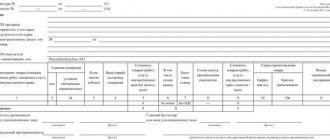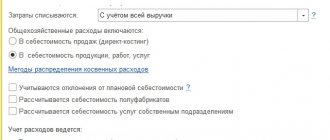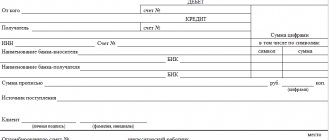The inability to conduct financial transactions leads to the paralysis of many business processes. Settlements with suppliers and customers, payment of rent and other payments are slowed down. If an organization has several current or foreign currency accounts, all will be blocked.
What should an entrepreneur do, how to lift the ban on debit transactions and resume using a current account - read the article.
From this article you will learn:
- What are the consequences of blocking a current account?
- How does the tax office decide to block a current account?
- On what basis can the tax office block a current account?
- How to unblock a current account
- In what cases is a current account blocked illegally?
- How to challenge a tax service decision
- How to reduce the risk of blocking your current account: 5 tips
What are the consequences of blocking a current account?
If your account is blocked, you will not be able to make any expense transactions: make payments to the budget, issue salaries to employees, pay for the services of a contractor, or buy goods. The only type of permitted payments in such a situation is through writs of execution. These include alimony, collection of moral damages, severance pay and payment of taxes on orders received by the bank before the date of the decision to block the account.
You will not be able to open a new account in another bank to direct your financial flows there. On the website of the Federal Tax Service (hereinafter referred to as the Federal Tax Service) there is a service for checking whether expense transactions have been suspended on the accounts of organizations and individual entrepreneurs. Before opening an account for a potential client, all banks are required to track him through this service. If an organization has frozen accounts, the bank will refuse to open a new account (Clause 12 of Article 76 of the Tax Code of the Russian Federation). It is impossible to close a blocked account.
Before large transactions, check whether your current account is blocked. Use the Federal Tax Service service: just enter the INN and BIC of your bank.
For what reason can a bank block the account and card of a business or individual entrepreneur under Federal Law 115?
If a company or individual entrepreneur filled out documents incorrectly, drew up a payment order incorrectly, tried to cut taxes, or simply did not inform the bank about changes in important data, then the bank must punish the client for this.
For example, a company, according to its charter documents, was engaged in the transportation of rolled metal, and then decided to transport apples from neighboring Belarus. And then one terrible day, the account and the cards linked to it may be blocked. The bank may find such a sudden change in activity, not supported by documents, suspicious. And he will require the client to explain incomprehensible transactions.
Let’s take another example: the company’s charter documents state that the company provides consulting services in the field of office leasing. And at one point the bank receives a payment order, which says that it is transferring funds to the counterparty “for the supply of cement.”
This will be clearly interpreted as money laundering, since the activity profile and the purpose of the payment do not match. That is, in the payment slip the purpose of the payment is indicated “out of the blue.” Until the client explains to the bank where such a payment came from, transactions on his account will most likely be suspended.
What should have been done to avoid blocking and explanations with the bank? It was necessary to warn the bank in advance that the client decided to renovate the office found by the consulting company. But he asked to pay for the supply of cement for repairs from the consultant’s account. Of course, you will need to attach documents for the provision of services to such a payment. But this is the only way to avoid getting your account blocked.
How does the tax office decide to block a current account?
Most often, the sequestration of funds in bank accounts is carried out by the desk department of the Federal Tax Service Inspectorate (hereinafter referred to as the Federal Tax Service Inspectorate). Its employees check all incoming declarations and other reporting from payers. They are the ones who monitor the timeliness of submission and correct completion of tax reporting, and exchange electronic documents via telecommunication channels (hereinafter referred to as TCS).
Having discovered a violation, a specialist from the office department draws up a document - a decision to bring the violator to justice, endorses it from the head of the inspection and seizes the payer’s bank account.
The tax office sends the decision to suspend transactions on accounts to the bank and the organization itself no later than the next day after its adoption. The decision is sent to the bank by email, and to the taxpayer by registered mail. Often, an entrepreneur receives a letter when the account is already blocked.
Having received a tax decision, the bank is obliged to immediately execute it and notify the Federal Tax Service of the amount of funds in the payer’s current account. Some banks inform their clients about the seizure of the current account and the suspension of operations - this is a personal initiative of the banks; by law they are not obliged to do this.
You might be interested in
Every business is unique in its own way. RKO for a specific type of business. Current account + a set of useful banking services on preferential terms.
find out more details
To stay informed about the status of your current account, use remote banking systems - it’s faster than receiving registered letters from the tax office.
On what basis does the tax office have the right to block a current account?
Article 76 of the Tax Code of the Russian Federation gives tax authorities the right to seize ruble and foreign currency current accounts for the following reasons:
Blocked due to non-payment of taxes
With this formulation, only the amount of debt for tax payments, accrued fines and penalties is blocked. All other money remains available for settlement transactions. If an organization has suspended operations on several current accounts, and there are enough funds to pay the arrears on one of them, send an application to the Federal Tax Service Inspectorate indicating the details of the required account and copies of bank statements confirming this fact. The seizure from other accounts must be removed within 2 days from the date of filing the application.
If there is not enough money in the account, the bank will write off all incoming funds from the current account until the debt is repaid in full. To speed up the removal of the arrest, the payer can deposit the missing amount into the account in cash. In any case, the account of an organization or entrepreneur will be unblocked only after all arrears have been received into the budget.
In case of non-payment of taxes, penalties and fines, blocking of current accounts is possible only after a decision is made to collect the debt amount. This usually happens if the taxpayer ignored the preliminary request of the Federal Tax Service for voluntary repayment of the debt or did not receive it.
Tax reporting not submitted
In this case, the account will remain blocked until the Federal Tax Service receives the required declaration or calculation. Art. 88 of the Tax Code of the Russian Federation in paragraph 2 provides a 3-month period for conducting a desk audit. Therefore, the Federal Tax Service will detect missing reports within 2 weeks to 3 months from the end of the reporting period, or less often later. The taxpayer's account will be seized within 10 days from the moment the violation is discovered, while 3 years is the maximum period during which sanctions for such a violation are applicable.
Did not send confirmation receipt of receipt of the Federal Tax Service's request
According to the law, the taxpayer has 5 days to send to the Federal Tax Service a receipt confirming the acceptance of the TKS requirements for a summons to the inspectorate or the provision of documents and explanations. The TCS document flow between the tax office and payers is systematized: if the confirmation receipt is missing from the system for more than 5 days, the system itself will inform the inspector about the need to seize it. In this case, the decision is made within 10 days from the moment the violation is discovered, that is, no later than 16 days from the moment the tax office sends the request.
As a result of the on-site inspection, arrears or a fine were accrued
Sometimes inspectors conduct an on-site inspection of the taxpayer, identify non-payment of taxes, and assess fines and penalties. And then debit transactions on the debtor’s current accounts can be suspended as an interim measure. The head of the Federal Tax Service approves the on-site inspection report, and the decision to block the current account is sent to the bank, and a copy of it is sent to the organization.
The above reasons are the only grounds for suspending operations on the current accounts of an organization or entrepreneur in the Tax Code of the Russian Federation. If the account is blocked for other reasons, you have the right to appeal to the arbitration court to challenge the seizure.
If your account is blocked for illegal reasons, contact the arbitration court.
What will the Commission say?
Since the spring of 2022, to help enterprises and individual entrepreneurs, a rather important document has been launched in order to regulate relationships with banks on these issues, namely Directive of the Bank of Russia dated March 30, 2018 No. 4760-U “On the requirements for the application, the composition of the interdepartmental commission, the procedure and deadlines consideration by the interdepartmental commission of the application and documents and (or) information submitted by the applicant, the procedure for making a decision based on the results of such consideration and the procedure for communicating the decision to the applicant and the financial organization by the interdepartmental commission,” and the next amendments made to Law No. 115-FZ came into force .
Now, paragraph 13.4 of Article 7 of Law No. 115-FZ enshrines the client’s right, taking into account the information received from the credit institution about the reasons for making the corresponding decision, to submit to this organization documents and (or) information about the absence of grounds for making a decision to refuse to carry out an operation or to refuse from concluding a bank account (deposit) agreement.
The fact that a financial organization, if a client contacts it for appropriate clarification, informs it of the reasons for the refusal in the manner established by such organization, is stated in the letter of the Central Bank of the Russian Federation dated September 12, 2018 No. IN-014-12/61 (clause 2).
The credit institution is obliged to review the documents and (or) information submitted by the client and, no later than 10 working days from the date of their submission, inform the client about the elimination of the grounds on which the decision was previously made to refuse to carry out the operation or to refuse to enter into a banking agreement account (deposit) or the impossibility of eliminating the relevant grounds based on the documents and (or) information provided by the client.
If the bank’s decision does not suit the business entity, then it has the right to submit an application and the specified documents and (or) information to the interdepartmental commission created under the Central Bank of the Russian Federation. In this case, the total period for consideration by the interdepartmental commission of the application and documents and (or) information submitted by the applicant cannot exceed 20 working days from the date of the applicant’s application.
The interdepartmental commission informs the applicant and the relevant financial organization for which it is mandatory about the decision no later than three working days from the date of its adoption.
After the bank receives a decision from the interdepartmental commission that there are no grounds on which the bank previously decided to refuse to carry out an operation or to refuse to conclude a bank account (deposit) agreement, the bank, if the applicant applies, does not have the right to refuse the applicant to carry out the operation or to concluding a bank account (deposit) agreement, respectively.
We will display the announced deadlines and the procedure for clarity schematically (see the diagram below).
That is, if the business entity itself is sufficiently efficient, within 33 working days it will be possible to receive a decision on its operations. The period, of course, is rather long, but this is something against the background of the absence of any mechanisms of action or deadlines for decisions at all.
Another important document is Bank of Russia Regulation No. 639-P dated March 30, 2018. After all, it is on the basis of this Regulation that the notorious “black lists” should be formed. And the mechanism for how to “whitewash” and be excluded from the “black list” still does not exist. But not only can each person correct himself and come to his senses, but also quite a lot of business entities end up on such lists by mistake.
But even if the Central Bank specialists did not support the enterprise in the dispute that arose, then you still should not despair. The remaining options are complex and time-consuming, but they exist.
How to unblock a current account?
To quickly unblock your current account, follow one of two schemes.
Find out the reason for blocking your current account
Contact the desk audit department of the Federal Tax Service at the place of registration of your company. When visiting the tax office in person, the tax director will need a passport, and the representative of the organization will need a passport and power of attorney. Employees of the desk audit department can tell you about the reasons for blocking an account over the phone, to do this, give the number and date of the decision, they can be found on the Federal Tax Service website or from employees of your bank.
Fulfill tax requirements: pay tax, submit a return or confirm receipt of a tax request...
Find out the cause and eliminate the violations. Provide documents that confirm payment of tax, submission of a declaration or receipt of a request for TKS during electronic document management with the Federal Tax Service.
...or provide a guarantee of payment of taxes if they are confirmed to be justified
If the reason for the arrest is non-payment of taxes, penalties or fines in a significant amount, you can avoid blocking the account. To continue working with your current account and calmly deal with the claims of the Federal Tax Service, replace the seizure of funds in your current account with other financial instruments. Provide the tax authorities with a bank guarantee, issue a pledge or guarantee from third parties. It is important to know that the tax office will accept a bank guarantee only if it is included in a special list of the Ministry of Finance.
A bank guarantee is an obligation of the bank, at the request of the Federal Tax Service, to transfer the required amount for the taxpayer. In other words, the bank gives a targeted loan to the organization to pay off the claims of the tax authorities.
To issue a guarantee, submit an application to the bank, provide reports and, after agreeing on all the conditions, attach the bank guarantee agreement to the application to remove the seizure from the current account. Interest rates on the guarantee are always significantly lower than on other loan products.
If the tax debt for the organization will be paid by a third party (for example, a parent or affiliated organization, founder, etc.), then a guarantee agreement is concluded between the payer and the Federal Tax Service. After signing a guarantee or pledge agreement, the Federal Tax Service must unblock the organization’s current account.
Notify the tax service that the violation has been eliminated
Send the documents to the Federal Tax Service using the taxpayer’s account or provide them to the inspectorate.
Be sure to include a statement requesting to cancel the seizure of the current account.
Application form to cancel the decision to block a current account
If the reasons for blocking the account are eliminated, debit transactions on the bank account must be resumed no later than the next business day.
find out the reason for the blocking, eliminate it and notify the tax office. If you did everything correctly, your account will be unblocked the next business day.
Payment of a bank loan in case of account seizure
When concluding a bank loan agreement, the account from which periodic payments are debited is indicated. If there is enforcement proceedings, such an account may be seized, which makes it impossible to repay current payments. Some credit organizations refer to the impossibility of rectifying the situation and refer them to bailiffs to solve the problem.
While the issue is being resolved in the BSC or not resolved at all, the bank charges interest and applies penalties for late payment. At the same time, the bailiff is not at all obliged to cancel the blocking in such circumstances, although you can try to resolve this issue. In particular, you can pay the debt or part of it voluntarily, disclose in a written statement the sources of income that may be subject to foreclosure, etc.
However, there is a norm - clause 1 of Art. 313 of the Civil Code, which obliges the creditor to accept the fulfillment of an obligation from a third party, if one is assigned to him by the debtor.
Here are simple steps on how to pay a loan if the account is seized by bailiffs:
- Reach an agreement with a third party to repay the loan through him. In some cases, it will be required that he be a card holder of the same bank.
- Ensure that a trusted person has the required amount, sometimes in cash, but more often on a card.
- Write an application from a third party to write off funds from his card to repay the next payment under the loan agreement in a certain amount.
- It may be necessary to write an application from the borrower himself.
Examples of illegal blocking of a current account
Sometimes inspectors exceed their powers and block the accounts of organizations and entrepreneurs illegally. This happens when employees of the Federal Tax Service do not want to understand a situation that arose due to an ambiguous interpretation of a legal norm, a technical error in a document, or untimely actions of tax officials.
The current account is frozen before the end of the period for voluntary execution of the decision and the entry into force of the decision of the tax inspectorate
For example, an individual entrepreneur has not paid tax according to the simplified tax system. The Federal Tax Service sends a demand for payment, which must be executed within 10 days from the date of receipt. Often, already on the 8th or 9th day, the tax office suspends transactions on your bank account and cuts off your oxygen. Submit or send a tax application and indicate in it that transactions on the current account have been suspended in violation. Then the illegal arrest will be lifted.
Current account blocked for failure to submit reports to the Pension Fund
The pension fund does not have the right to suspend transactions on accounts. It is within his competence only to send a collection order to collect the arrears. If there are sufficient funds in the account, it is executed immediately, and if there is not enough money, it is executed as it arrives. If the Pension Fund of Russia has violated this rule, write an application to the head of the territorial department of the Pension Fund of the Russian Federation to cancel the blocking and file a claim with the arbitration court.
You did not submit a declaration to the Federal Tax Service on time due to the fault of a third party
If you sent the declaration on time, but it was not delivered: it was lost in the mail or a technical failure occurred - it is not your fault. Provide tax confirmation of the fact of sending, and the blocking will be lifted no later than the next business day. If it is not removed, you have the right to go to court.
Loan, deposit and other accounts that are not related to settlement and cash services have been blocked
The Federal Tax Service has the right to block only those accounts that are opened for the purpose of settlement and cash services for the organization. Credit, loan, deposit, and transit accounts are not subject to arrest.
The account is blocked based on the results of an on-site audit if the taxpayer has property or fixed assets
This is one of the preventive measures, its purpose is to collect as many taxes and fines accrued as a result of on-site inspections. To prevent an entrepreneur or organization from evading subsequent payments, the Federal Tax Service decides to block the current account.
The arrest is imposed on the payer’s funds in the amount of the debt to the budget identified during the audit. Tax authorities can apply this measure only if the organization does not have property with which to collect the debt, or if it is insufficient. In all other cases, blocking is illegal.
For example, an LLC owns 3 office premises and 2 vehicles. The total value of the enterprise's property is estimated at 17 million rubles. Based on the results of the on-site audit, the tax authority assessed additional VAT and income tax to the organization. The total amount of the identified arrears is 1.4 million rubles. After the inspection is completed, the servicing bank receives a request from the Federal Tax Service to impose a ban on debit transactions on the LLC’s current account in order to ensure the collection of arrears. This requirement is illegal, and here's why.
The organization's property - 17 million rubles - is quite enough to collect unpaid taxes, penalties and fines - 1.4 million rubles. The decision to suspend operations even in the amount of 1.4 million rubles contradicts the requirements of the law and violates the rights of the organization.
Going to court
So, we are talking about a trial. An organization may file a corresponding claim against a credit institution.
True, arbitrators do not always side with enterprises and entrepreneurs. Thus, in the decision of the Arbitration Court of the Far Eastern District dated August 10, 2017 No. F03-2961/2017, the arbitrators supported the bank, which blocked remote management of the account due to the fact that 73 percent of the received funds were transferred to the accounts of a number of individuals. Moreover, all the accounts to which the funds were transferred belonged to individuals and were not a salary (corporate) project of the company.
The judges of the Volga District, in a resolution dated 06/09/2016 No. F06-8865/2016, agreed with the bank that the nature of the organization’s activities was suspicious. It was established that the company has a minimum allowed authorized capital; the founder, director and chief accountant are combined in one person; More than 130 legal entities are registered at the client's registered address. The turnover on the client’s account in the first partial month of service exceeded 10 million rubles with the amount of tax payments being 6,100 rubles with a complete absence of taxes paid from the payroll fund. Some of the incoming transactions on the client’s account did not correspond to the declared activity codes according to OKVED.
The Arbitration Court of the Central District in Resolution No. F10-5838/2017 dated January 18, 2018, and the Arbitration Court of the Far Eastern District in Resolution No. F03-3739/2018 dated September 6, 2018 also considered the dubiousness of the transactions proven.
The Arbitration Court of the Volga-Vyatka District on December 9, 2016 No. F01-5125/2016 considered the following situation. The entrepreneur provided an interest-free loan of 6,000,000 rubles for one year, which was returned by the organization to his account 15 days after its transfer. The entrepreneur tried to transfer the returned funds to his personal card (account). Paradoxically, the judges, without questioning the very fact of the existence of the loan and its repayment, paid attention only to the fact that the loan was issued in violation of the limit established by Directive of the Central Bank No. 3073-U.
Even the Supreme Court of the Russian Federation, in Ruling No. 301-ES17-2205 dated April 6, 2017, refused to transfer this to the Judicial Collegium for Economic Disputes of the Supreme Court of the Russian Federation for review.
But completing a transaction with certain violations of the law does not call into question the transaction itself. Nevertheless, the entrepreneur lost the lawsuits.
The arbitrators of the Ural District, in Resolution No. F09-3028/18 dated June 18, 2018, refused to approve the opening of a current account for an entrepreneur, since the entrepreneur’s financial transactions were repeatedly recognized by the bank as questionable, his accounts as an individual, after verification, were blocked by the bank in the form of suspension of remote banking services to the client, the entrepreneur’s performance of unusual financial transactions in the absence of a reasonable economic purpose is confirmed.
However, arbitration practice is not at all as depressingly uniform as it might seem.
The judges of the Far Eastern District, in Resolution No. F03-3838/2016 dated August 29, 2016, indicated that an organization’s transfer of 1,001,000 rubles to its other account against the background of minimum tax payments cannot in itself constitute a dubious operation. The bank does not have the right to perform the functions of a fiscal authority.
A rather interesting situation was considered by the AS of the Far Eastern District in Resolution No. F03-5268/2015 dated December 22, 2015. The entrepreneur transferred income from business activities to his personal bank card.
The courts reached the following conclusion. Sending information to the relevant authorities about the bank’s suspicions that the transactions carried out by the entrepreneur are aimed at legalizing (laundering) proceeds from crime, in accordance with paragraph 3 of Article 7 of Law No. 115-FZ, is not a basis for limiting rights without sufficient grounds the client to dispose of funds at his own discretion. His personal funds were received as income from business activities, which he had the right to dispose of at his own discretion, using a bank card issued in the name of an individual.
In the Resolution of the Arbitration Court of the Moscow District dated 07/02/2018 No. F05-9279/2018, the arbitrators ruled that the evidence that the client’s banking transactions during the disputed period were confusing, not obvious, had no real purpose or were aimed at laundering funds obtained by criminal means, financing terrorist activity, or pursued any other illegal purpose, is not presented by the bank.
The Resolution of the Seventh Arbitration Court of Appeal dated September 17, 2018 No. 07AP-6237/2018(2) considered the situation when the bank decided to refuse to execute the client’s order to complete a transaction before the expiration of the deadline for submitting the requested documents; partially requested documents were submitted by the plaintiff before acceptance the defendant of the decision to refuse to execute the client’s order to complete the transaction. Under such circumstances, the bank was found to be in the wrong.
But there are situations when going to court with a claim against the bank is inappropriate for one reason or another. In this case, you should... go to court. No, that's not a typo. Precisely to court, but not against the bank, but against the already damaged enterprise itself.
Why do this? If there is arrears in wages or under an agreement with a supplier, in order to pay off the staff or partner in the least bloodless way, all that remains is to lose the court and write off the money from the account on the basis of a writ of execution.
In our practice, in a situation where there was a protracted decision regarding the unblocking of an account, the “stuck” money was recovered by a court decision within three months. The defendant company admitted its debt and in court explained its non-payment by the bank’s actions to block the account. Sometimes this slow method can be optimal.
How to challenge the decision of the Federal Tax Service
The purpose of interim measures on the part of the tax authorities is to guarantee future payments, and not to deprive the taxpayer of the opportunity to conduct his professional activities. Sometimes tax authorities have to remind you of this.
If the deadlines for imposing or removing the arrest from the current account, or its illegal blocking, are violated, the organization suffers losses: penalties and fines for late credit, rental and other payments increase, profitable deals are disrupted or existing contracts are terminated. By filing a claim with the arbitration court at the location of the tax authority, you will receive compensation for losses if you can document their amount.
If you find yourself in a situation where your account is blocked illegally, act!
Prepare objections to the decision to block the account
In your objections, write in detail what exactly the violation of your rights is. For example, blocking an entire current account as an interim measure is disproportionate to the amount of unpaid tax; the organization has property that can act as a guarantee of fulfillment of tax obligations and other reasons. Attach documents proving the legality of the payer's claims (these may be documents confirming the right of ownership of property and others).
An example of objections to a decision to unlawfully block an organization’s current account due to failure to submit a quarterly report in Form 6-NDFL
Send objections to higher authorities of the Federal Tax Service
Submit your objections to the blocking decision to the higher authorities of the Federal Tax Service - usually this is the regional or regional department of the Federal Tax Service of the Russian Federation. If the objections are not satisfied, you should apply for protection of your rights to the arbitration court at the location of the payer.
State duty and deadlines for consideration of the case
For consideration of a case in court, a state fee is charged in the amount of 4% of the value of the claim, but not less than 2,000 rubles. The usual review period is 3 - 4 months. Claims in such cases are justified by Art. 16 Civil Code of the Russian Federation, art. 1069 Civil Code of the Russian Federation, clause 9.2 art. 76 Tax Code of the Russian Federation. Rules for filing applications to the court, payment details and state duty calculators are posted on the websites of arbitration courts.
Tax inspectors also make mistakes and, as civil servants, are required to bear responsibility for breaking the law. Recently, an increasing number of entrepreneurs and organizations have won cases in court and received compensation.
How to reduce the risk of blocking your current account
Any organization or entrepreneur may face blocking of their current account. If the inspector has seized the funds of a business entity legally, the taxpayer should eliminate the identified violation.
Sometimes the reasons for blocking are illegal, and then the organization will have to challenge the Federal Tax Service’s decision to suspend operations on the account in an arbitration court.
To minimize the risk of your current account being seized, we recommend following simple rules.
Tip No. 1. Monitor the work of the accountant
To minimize the likelihood of funds being seized, submit reports and pay taxes on time. If your accounting is carried out by a third-party accountant or outsourced firm, carefully select partners and monitor how your taxpayer obligations are fulfilled.
Tip No. 2. Manage current accounts through remote banking systems
A registered letter from the tax office about the suspension of transactions can take several days, or even weeks, and through banking systems you receive information about movements in the account and seizures immediately. By maintaining a remote connection with the bank, you will begin to resolve the problem faster.
Tip No. 3. Open several current accounts in different banks
Current accounts opened in different banks can simplify the life of the payer after the account is blocked. If one of them has enough funds to satisfy the claims of the tax authorities, the second will be unlocked upon your application, and you will be able to freely carry out monetary transactions through it.
Tip #4: Use available organization verification services
Make it a rule to regularly check your current accounts for arrests through the Federal Tax Service, especially before large receipts or write-offs. If you have lines of credit (overdrafts) open to your accounts, you should be especially careful to avoid defaulting on your loans due to a freeze.
Is it possible to open an account in another bank and transfer money there from a blocked one?
Sometimes yes. For example, when blocked under 115-FZ, some banks allow you to withdraw or transfer money, after which they close the blocked account. They charge a high commission for this: in Tinkoff and Promsvyazbank - 20%, in Alfa Bank - from 10 to 25%, in Gazprombank - 10%.
We recommend that you do not leave, but find out the reason for the blocking and try to get it removed. In some cases, refusal of a transaction or unilateral termination of an agreement by a bank results in the company being blacklisted. You can get out only by proving that your activities are legal. No bank, other than the one on whose initiative you ended up there, will help with this. The list is available to all banks in the Russian Federation - companies can refuse service, although the Central Bank is not obligated to do this.







